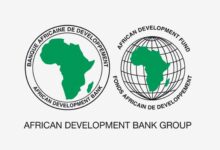Otedola vs. Umar Sani: A Billionaire’s ₦1 Billion Lawsuit Rekindles Subsidy Scandal Debate

When Nigerian billionaire and philanthropist Femi Otedola announced a ₦1 billion libel suit against Umar Sani, former spokesperson to ex-Vice President Namadi Sambo, it sent shockwaves through Nigeria’s political and business landscape. The lawsuit, rooted in allegations linking Otedola to the country’s infamous fuel subsidy scandal, goes beyond personal reputation—it reopens an old wound in Nigeria’s governance and economic history.
For a nation still grappling with the consequences of decades of subsidy fraud—estimated by Otedola himself at over ₦2 trillion between 2009 and 2015—the case highlights not only the power of misinformation but also the lingering lack of transparency in Nigeria’s oil sector. It also raises critical questions: How do unresolved subsidy narratives affect investor confidence? What are the implications for government reforms and Nigeria’s fragile reputation in global markets?
Background to the Dispute
Umar Sani accused Otedola of complicity in the Petroleum Subsidy Fund scheme, alleging that his company, Zenon Petroleum and Gas Ltd., benefitted from fraudulent practices and engaged in questionable dealings during the House of Representatives’ probe led by Hon. Farouk Lawan.
Femi Otedola, however, insists Zenon only traded in diesel—a deregulated product outside the subsidy regime—and could not have made subsidy claims. He accused Sani of peddling “lies and distortions” in an attempt to drag his name into a scandal he had long distanced himself from.
In fact, Otedola argues he was one of the first whistleblowers on subsidy fraud, raising alarms directly to then-President Goodluck Jonathan and later through Senator Bukola Saraki, leading to a parliamentary probe.
The Farouk Lawan Affair: A Sting Operation Misunderstood
Otedola clarified that the much-cited “bribery” incident was in fact a DSS-backed sting operation aimed at exposing lawmakers allegedly seeking to extort him. Under surveillance, he handed marked money to Hon. Lawan, who was later convicted and sentenced for bribery.
To twist those events into an indictment of him, Otedola says, is “laughable” and underscores the dangers of rewriting history without facts.
Sector Analysis
Oil & Gas Sector
The resurfacing of subsidy scandal narratives underscores the sector’s structural weaknesses. Despite deregulation efforts, Nigeria’s oil industry remains haunted by legacy opacity. The Otedola-Sani spat exposes the need for final publication of the Aigboje Aig-Imoukhuede subsidy report, which allegedly details the true beneficiaries of subsidy fraud.
Legal and Corporate Governance
The ₦1 billion lawsuit highlights the growing use of litigation as a tool for reputation management in Nigeria’s business environment. As Nigeria pushes for foreign direct investment (FDI), the case may serve as a warning to public figures that unfounded allegations carry financial risks.
Financial Services and AMCON
Otedola openly admitted his debt exposure during the 2008 global financial meltdown and detailed how he surrendered assets to the Asset Management Corporation of Nigeria (AMCON) under a court-approved settlement. His transparent handling of that crisis—and AMCON’s public commendation of him—contrasts sharply with Sani’s narrative, reinforcing the role of accurate financial reporting in Nigeria’s banking system.
Stakeholder Implications
- For Business Leaders: Reputation is currency. In an era of viral misinformation, robust legal recourse is necessary to protect corporate legacies.
- For Government & Regulators: The case highlights the urgent need for transparency in subsidy-era investigations. Nigeria cannot build a future of trust while leaving past scandals unresolved.
- For Investors: This lawsuit is a reminder that Nigeria’s oil sector carries reputational and regulatory risks. However, it also demonstrates that rule of law mechanisms remain functional when invoked decisively.
- For Citizens: The ongoing blame game between elites underscores why subsidy reform remains politically and socially explosive. Nigerians deserve clarity, not propaganda.
Economic Implications
- Investor Confidence: High-profile disputes involving billionaires and government-linked aides risk sending mixed signals to international investors about Nigeria’s regulatory environment.
- Oil Sector Reforms: The resurfacing of subsidy scandals may pressure the Tinubu administration to publish the Aig-Imoukhuede Report, a move that could either restore confidence or deepen controversy.
- Judicial Precedent: If successful, the ₦1 billion lawsuit could set a precedent that deters politically motivated defamation—shaping Nigeria’s corporate communications environment.
BRANDECONOMY Takeaways for Stakeholders
- Reputational Capital Matters – In Nigeria’s volatile business and political climate, safeguarding one’s image is as critical as balance sheet strength.
- Transparency is Currency – Without publishing the full subsidy report, Nigeria risks recurring scandals that damage its global credibility.
- Litigation as Strategy – Lawsuits are becoming part of corporate defence strategies. Leaders must document, publish, and proactively defend their narratives.
- Oil Reform Still Unfinished Business – The Dangote Refinery, subsidy removal, and lingering subsidy fraud scandals all point to the same truth: Nigeria’s petroleum sector reform remains incomplete.
Investor Implications – Stakeholders must factor in reputational risks when engaging in Nigeria’s oil-linked businesses, ensuring compliance, disclosure, and alignment with global governance norms.












